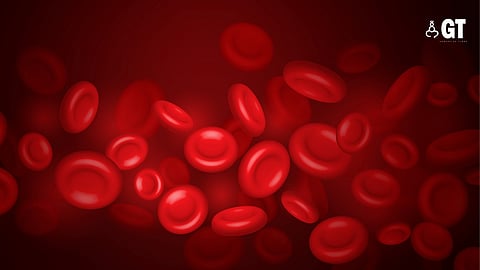

Dean of Goa Medical College and Hospital (GMC) Dr Shivanand Bandekar has asserted that prophylaxis will now be the standardised care for hemophilia patients, which is great news for those looking to live a normal life.
Dr Bandekar was speaking after inaugurating Hemophilia Day programme recently organised at GMC with the initiative of Hemophilia Society, Panjim Chapter.
The presence of medical professionals, including Dr Bandekar, Dr Anar Khandeparker, Head of the Medicine Department, Dr Vaishali Joshi, Head of the Pediatric Department added to the fruitful deliberations regarding hemophilia treatment at GMC.
The event featured informative sessions on hemophilia care and prophylaxis by Assistant Professor Medicine Dr Ramnath Nevrekar, who heads the hemophilia treatment section, and contributions from the HTC Aluva team, Kerala, including Syam Raj, Ajai Thomas, and Senior Physiotherapist Dr Dinkar Viswam. Patients also benefited from an inhibitor camp and joint assessment sessions.
Other highlights included a talk on the use of social media in achieving advocacy goals by Chapter Advocacy Ambassador Prakash W Kamat and guidance on daily care and fitness by GMC Occupational Therapist Dr Velankani Raposo.
The Hemophilia Society Panjim Chapter is committed to continuing to serve and support those affected by hemophilia in the community.
GMC under Health Minister Vishwajit Rane and Dean Dr Bandekar have been continuously monitoring the day care centre facilities at GMC and have promised to bring the entire facility including hemophelic children's treatment under one roof in future.
Prophylaxis is a preventative treatment strategy for hemophilia that involves regular infusions of clotting factor concentrates to reduce the frequency and severity of bleeding episodes.
It is a critical component of hemophilia care and has been shown to improve outcomes and quality of life for people with the disorder.
Prophylaxis can be administered on a regular basis, typically once or twice a week, or on-demand, where treatment is initiated only when a bleeding episode occurs. However, regular prophylaxis is generally considered the standard of care for patients with severe hemophilia, as it helps prevent the development of joint disease and other complications associated with recurrent bleeding.
The term "prophylaxis" is often abbreviated to "prophy" or "proph," and the specific treatment regimen used may vary depending on the individual patient's needs and medical history.
Ultimately, the goal of prophylaxis is to provide ongoing protection against bleeding and to help people with hemophilia lead active and healthy lives.